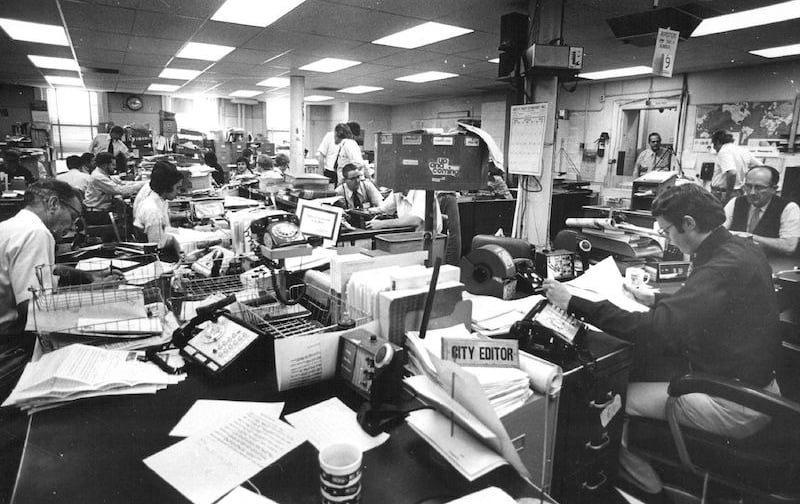The Fourth Estate's Influence: How Media Shapes Voter Perceptions
U.S.


New Lyons, October 20, 2024 — In an age where information flows ceaselessly through radio waves, newspapers, and the emerging medium of television, the media's role in shaping voter perceptions has never been more profound. As the United States approaches a critical election season, understanding the influence of the "Fourth Estate" becomes essential.
The term "Fourth Estate" underscores the media's power as a societal pillar alongside the legislative, executive, and judicial branches. Journalists act as gatekeepers of information, deciding which stories to highlight and how to present them. Dr. John Dimmer, a media studies professor at New Lyons University, explains: "The media doesn't just report facts; it frames narratives. The choice of words, images, and the amount of coverage given to issues significantly impact public opinion."
Candidates rely heavily on media exposure to reach voters. Positive coverage can boost a campaign, while negative press can derail even the most promising candidates. Recent polls indicate that voters' impressions of politicians like Jerrod Ducasse and Senator Vivek Patel are heavily influenced by media portrayals. Debra Paulson, a New Lyons resident, admits: "I feel like I know the candidates based on what I read and hear. It's hard to separate their actual positions from the media's interpretation."
Accusations of media bias are common, with some outlets perceived as favoring particular political ideologies. This bias can manifest in subtle ways—through the selection of stories, tone of reporting, or editorial commentary. Cecil Fisher, editor of the Daily Tribune, reflects on the challenge: "We strive for objectivity, but complete neutrality is difficult. Acknowledging our biases helps us present balanced coverage."
Radio remains a powerful medium, offering intimate connections between broadcasters and listeners. Programs like "Midnight Serenade" with DJ Frank Malone not only entertain but also influence public sentiment through discussions and music choices. During election seasons, radio hosts often invite candidates for interviews, shaping voter perceptions through their interactions. Television, though still in its infancy, is rapidly becoming a dominant force. Visual imagery adds a new dimension to storytelling, making appearances and body language part of the political equation. The famous 1952 "Checkers Speech" by Vice President Richard Nixon showcased television's potential to sway public opinion.
With great power comes great responsibility. Ethical journalism requires accuracy, fairness, and integrity. Margaret Sullivan, a veteran journalist, emphasizes: "Our role is to inform, not to manipulate. Trust is the currency of journalism. Without it, we fail our readers and our democracy." While media influence is significant, voters also bear responsibility for critical thinking. Engaging with multiple sources and questioning information helps mitigate bias. "I try to read different newspapers and listen to various radio programs," says Francis Lewis, a teacher in New Lyons. "It's important to form my own opinions rather than accepting everything at face value."
Looking abroad, state-controlled media in some countries highlights the contrast with America's free press. The ability to scrutinize leaders and policies openly is a cornerstone of democratic societies. The media landscape faces challenges, including the rise of misinformation and the pressure of rapid news cycles. Balancing speed with accuracy is a constant struggle. Technological advancements bring both opportunities and risks. As communication methods evolve, so too must journalistic practices.
The media's influence on voter perceptions is undeniable. As the Fourth Estate continues to shape the national dialogue, both journalists and consumers must navigate this complex relationship thoughtfully. An informed electorate is essential for a healthy democracy. By fostering transparency, accountability, and open discourse, the media can fulfill its vital role in society.
Daniel Roberts is a political correspondent for the NL Sentinel, specializing in governmental affairs and social movements. With a keen interest in the evolving political landscape, he brings insightful analysis to current events.
Editor's Note: How do you perceive the media's role in shaping your views? Share your experiences and opinions at droberts@nlsentinel.com or join the discussion using #MediaAndDemocracy.
